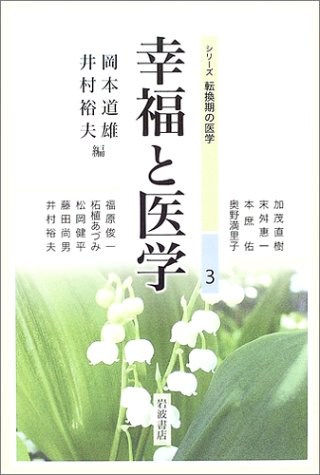4 0 0 0 OA 環境倫理の提言 (1)
- 著者
- 加茂 直樹 竹山 重光
- 出版者
- 環境技術学会
- 雑誌
- 環境技術 (ISSN:03889459)
- 巻号頁・発行日
- vol.22, no.12, pp.742-746, 1993-12-30 (Released:2010-03-18)
- 著者
- 加茂 直樹 平田 博文
- 出版者
- 公益社団法人 日本化学会
- 雑誌
- 化学と教育 (ISSN:03862151)
- 巻号頁・発行日
- vol.44, no.2, pp.114-118, 1996-02-20 (Released:2017-07-11)
- 参考文献数
- 2
化学反応速度の初歩の理論を解説した。アレニウスの半経験的な式に現われる活性化エネルギーおよび頻度因子を, ガス分子の衝突理論およびアイリングの活性化複合体理論によって解説した。化学反応が起こるためには, 分子が衝突し, 1)衝突に際し適当な向きになっており, 2)ある値のエネルギーを供給できるだけのエネルギーをもって衝突しなければならない。1)は活性化エントロピー, 2)は活性化エネルギーが決定する。
本研究では各大学における教育目標、教育方針、アドミッションポリシーと中等教育の多様性の適合度を明らかにしたいと考え、入学者受入方針等に関する調査を行うとともに、AO入試の実施状況、オープンキャンパスにおける高校生に対する情報提供の現状と課題、専門高校および総合学科高校出身者の大学受入の現状、ならびに入学者の志望動機等に関するアンケート調査などを実施した。また、専門高校、総合学科高校、SSHと高大接続、総合的な学習と高大接続などの高校での学びの多様化と大学入試について研究会を開催し、話し合った。モデル化も行う予定であったが、この数年でAO入試実施大学が急激に増加し、そのアドミッションポリシーも新たに独白性を持ったものが増えており、今後さらに増加すると予想されるため、静的なモデルではあまり意味がないと考え現状分析を行った。今後、時代の変化に応じた新しい入試や大学進学を扱う、環境適応能力を表現できる動的なモデルを考える必要があると思う。アドミッションポリシー、入学試験や合格者への調査は本研究のメンバーによって大変精力的に行われ、大きな成果があったと考えている。一方、入学後ある程度の時間を経た学生や大学側の満足度のような指標の調査はあまり広く実施できなかった。複数の大学で共通のアンケート調査を実施して卒業研究評価を試み、幸い九州大学と筑波大学の2大学で実施した結果を平成18年度の入研協で報告できることとなったが、このような共同研究は大学間の調整の困難さだけでなく、アドミッションセンターと学部や学科との間の調整がかなり困難であるらしいことも分かった。海外調査はSARSの影響で平成16年度以降に行った。欧州の調査は行えなかったが本研究メンバーが他の研究費で行ったフィンランド等の調査結果について本研究のミーティングで知ることができた。本研究では米国、オーストラリア、中国、台湾の調査を行い、各国で入試の多様化が進んでいることが分かった。「理科離れ」について、理科教育を熱心に行っている教員や学芸員、SSHの教員との研究会を開催してAO入試との関連について話し合った。総合的な学習で理科が好きになる、総合的な学習の時間を減らして理科の時間を増やすべき、などの意見があった。しかし、私見であるが、実践されている授業内容に大きな違いは無いように思われ、また、理科離れは科学振興という社会の要請と生徒や学生の個人の幸福が結びついていないというところにも問題があると思われた。さらなる研究が必要である。本研究の成果は、平成15、16年度中間報告書とシンポジウム論文集ならびに成果報告書の4部に収録した。
2 0 0 0 IR 現代社会における自由
- 著者
- 加茂 直樹
- 出版者
- 京都教育大学
- 雑誌
- 京都教育大学紀要. A, 人文・社会 (ISSN:03877833)
- 巻号頁・発行日
- vol.90, pp.201-212, 1997-03
有名な著書『自由論』(1859年)において,J・S・ミルは行為の自由についての自由主義的原則を定式化し,「文明社会の成員に対し,本人の意志に反して,正当に権力を行使しうるのは,他人に対する危害の防止を目的とする場合だけである」と述べる。20世紀の自由主義者の多くも,これを個人の行為を規制するための,唯一ではないにしても基本的な原則として受け入れ,伝統的に不道徳とみなされてきた個人の行動の多くについて,その自由化あるいは非犯罪化を支持した。これに対して,保守派の論客たちは,社会の道徳と基本的制度の保護は法の重要な役割であると主張した。この論争は自由主義者側に有利に展開したように思われた。しかし,性,医療,社会福祉,環境などの新しい課題が次々に提起されるにつれて,自由主義の理論そのものが根本的な変容を強いられることになった。この過程の簡明な概観が本論文の主要な目的である。In his famous book On Liberty(1859), J.S.Mill formulates a liberalistic principle on the freedom of action, and says "That the only purpose for which power can be rightfully exercised over any member of a civilised community, against his will, is to prevent harm to others". Many of the 20th century liberalists, accepting this as the fundamental, if not the only, principle for restricting acts of individuals, gave support to liberalizing or decriminalizing many behaviours which had been traditionally regarded as immoral. Against this, conservative theorists maintained that protection of the morality and essential institutions of the society is an important role of law. This controversy seemed to develop to the advantage of the liberalist's side. But as new problems, such as sex, medicine, social welfare, and environment, were posed one after another, the liberalistic theory itself has been forced to suffer radical change. To make a brief survey of this process is the main purpose of this paper.
1 0 0 0 幸福と医学
- 著者
- 岡本道雄 井村裕夫編 加茂直樹 [ほか執筆]
- 出版者
- 岩波書店
- 巻号頁・発行日
- 2004
1 0 0 0 IR 20世紀後半における日本の社会保障制度
- 著者
- 加茂 直樹 KAMO Naoki
- 出版者
- 京都女子大学現代社会学部
- 雑誌
- 現代社会研究 (ISSN:18842623)
- 巻号頁・発行日
- vol.11, pp.5-28, 2008-12
本稿は、英国を中心に欧米における社会福祉の発展過程を概観した前々稿「社会保障制度の形成」(『現代社会研究』Vol. 10、2007年)および20世紀前半までの日本における社会福祉の発展過程を概観した前稿「日本の社会保障制度の形成」(『現代社会研究科論集』第2 号、2008年)に続き、20世紀後半における日本の社会保障制度の成立とその後の変遷を大まかに把握することを目的とする。なお、これらの歴史的な研究は、さまざまな問題を抱えている現代日本の社会保障制度を批判的に検討するための予備的考察である。本稿の内容は下記の通りである。Ⅰ 社会福祉の発展過程 Ⅱ 社会保障制度の成立過程 Ⅲ 国民皆保険・皆年金体制の成立 Ⅳ 制度の変遷過程The purpose of this paper is to comprehend briefly how Japanese social security system came into existence and underwent changes in the latter half of the 20th century. I think it is necessary to do so as a preliminary step to develop a critical examination of the social security system in contemporary Japan. The contents are as follows : Ⅰ The Progress of the Social Welfare Ⅱ How Japanese Social Security System Came into Existence Ⅲ The Realization of the 'Medical and Pension Insurance for All' System Ⅳ The Changing Process of the System
1 0 0 0 OA 環境問題における法と国家
- 著者
- 加茂 直樹
- 出版者
- 日本法哲学会
- 雑誌
- 法哲学年報 (ISSN:03872890)
- 巻号頁・発行日
- vol.1995, pp.5-17, 1996-10-30 (Released:2008-11-17)
- 参考文献数
- 10
- 著者
- 池田 文人 鈴木 誠 加茂 直樹
- 出版者
- 国立大学入学者選抜研究連絡協議会
- 雑誌
- 大学入試研究ジャーナル
- 巻号頁・発行日
- vol.17, pp.51-55, 2007
本学は平成13年度からAO入試を導入し、平成16年度末に学部卒業者を輩出した。そして今年度末には大学院へ進学した学生たちが修士課程前期を修了する予定である。AO入試は一般入試に比べて受験者も大学側も労力がかかる入試である。それだけにAO入学者に対する期待は大きい。本研究では、AO入学者が一般入試による入学者と比較して、(1)各高等学校の優秀な生徒であるか、(2)入学後の成績が良好であるか、(3)大学院へより多く進学している、の三つの指標について検証した。その結果、(1)と(3)については期待通りと言えそうであるが、(2) については期待通りとは言えないこと、しかし、成績のばらつきは一般入学者に比べて大きいことが分かつた。総じて、これら三つの指標については、AO入学者は一般入学者とは異なることが言えそうである。
- 著者
- 阿部 孝行 菊川 峰志 加茂 直樹
- 出版者
- 一般社団法人日本生物物理学会
- 雑誌
- 生物物理 (ISSN:05824052)
- 巻号頁・発行日
- vol.47, no.1, 2007-11-20



